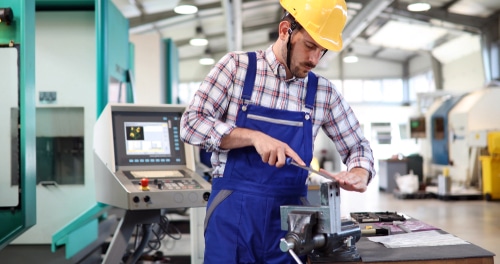Manufacturing has always been the backbone of a nation’s industrial and economic development. Over the centuries, its significance has evolved, redefining the processes, technology, and methodologies involved. This article aims to provide an in-depth overview of manufacturing, its types, and its importance in today’s globalized world.
The Core Essence of Manufacturing
Manufacturing is the systematic process of transforming raw materials into finished goods through the use of tools, human labor, and machinery. It is an activity that adds value by creating physical, chemical, or mechanical transformation of materials to produce a tangible product.
Types of Manufacturing Processes
- Batch Production:
- This type involves producing a set number of items in a batch. It is ideal for products with moderate demand.
- Job Production:
- This process focuses on creating one-off, bespoke products. Examples include tailored suits or custom-made furniture.
- Mass Production:
- A high-volume manufacturing process that produces large quantities of a single product. This type leverages assembly lines and specialized machinery.
- Continuous Production:
- It’s an uninterrupted production system designed for commodities like oil, electricity, and chemicals.
Significance of Modern Manufacturing
Manufacturing today isn’t just about producing goods. It’s about:
- Quality Assurance: Ensuring products meet the desired standards and specifications.
- Sustainability: Adopting eco-friendly processes and materials to reduce environmental impact.
- Innovation: Incorporating advanced technologies, like AI and IoT, to improve efficiency and product quality.
Advanced Technologies Reshaping Manufacturing
1. Robotics:
Empowering industries with automated machinery that can handle repetitive tasks efficiently.
2. 3D Printing:
Transforming product design and prototyping by allowing for rapid creation of complex structures.
3. Artificial Intelligence:
Enhancing production by predicting machinery breakdowns, optimizing supply chains, and personalizing consumer products.
4. Internet of Things (IoT):
Facilitating real-time monitoring and data analysis, ensuring optimized operations and energy savings.
Understanding the Global Manufacturing Landscape
Manufacturing has evolved, adapting to the demands of the global market. Factors shaping this landscape include:
- Supply Chain Complexity: With globalization, managing extended supply chains has become more intricate.
- Consumer Expectations: The demand for personalized, high-quality products delivered promptly has increased.
- Regulatory Compliance: Manufacturers must abide by ever-changing international standards and regulations.
Enhancing Manufacturing Competitiveness
For businesses to remain competitive, they need to:
- Adopt Lean Manufacturing: Eliminating waste from every production stage ensures cost savings and efficiency.
- Integrate Advanced Technologies: Adopting the latest tech tools and platforms can provide a competitive edge.
- Skill Development: Regular training and workshops ensure that the workforce is up-to-date with the latest industry practices.
Conclusion: The Future of Manufacturing
In an age defined by rapid technological advancements, manufacturing stands at the crossroads of innovation and tradition. As the sector embraces change, the journey from raw materials to finished products becomes more efficient, sustainable, and attuned to the global market’s demands. The future of manufacturing, thus, promises not just growth, but evolution.








